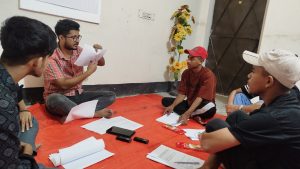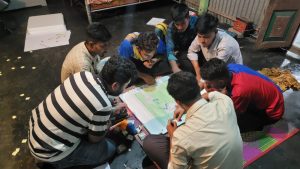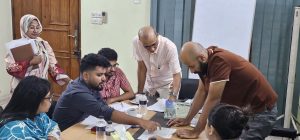Drivers of Food Choices in Adolescents in Bangladesh
DATA is proud to announce the successful field completion of a qualitative study “Drivers of Food Choices of Adolescents in Urban and Rural Bangladesh”. This was a pilot study for a large scale umbrella research project: “Transfer Modality Research Initiative 2026”.



This was a qualitative study consisting of 9 FGDs. From 4 different locations: two rural sites and two urban sites. The rural sites were in Gazipur and Manikganj, and the urban sites were in Bosila and Karail. This pilot was organized to develop and practically understand an FGD tool for the main field for TMRI 2026.



Each FGD participant was from 13 to 19 years of age. Each session had a respondent group of 3 to 5 participants. The discussion was hosted and conducted by qualitative researchers from DATA’s network. Before and after each FGD there were preparatory and feedback discussions among DATA team members to adjust the tool, pre FGD checklists, and participant criteria; the entire FGD mechanism and system for scalability.


After each discussion the tool was developed and updated further to generate more insightful conversation among participants. The FGD sessions consisted of imaginative graffiti wall activities as well Community mapping activities to add to the discussion points.
This was an FGD pilot run rich with interesting leads and observations and methodology development. The pilot FGD study was guided by Francoise Cattaneo (Fra), a PhD Pursuant from Cornell University. Apart from the qualitative study Francoise engaged in local market visits and short Q&A sessions with local vendors, whole sellers, street food sellers and promoters to understand the food market for adolescents in Bangladesh. She also observed a controlled dietary intake interview to prepare for next year. The DATA team also took part in a discussion to incorporate photovoice techniques for the upcoming main survey.


The entire experience with Fra has been rich with engaging discussions on new research methodologies as well learning opportunities for implementing large-scale qualitative research. We are now excited and prepared for TMRI 2026 next year.
